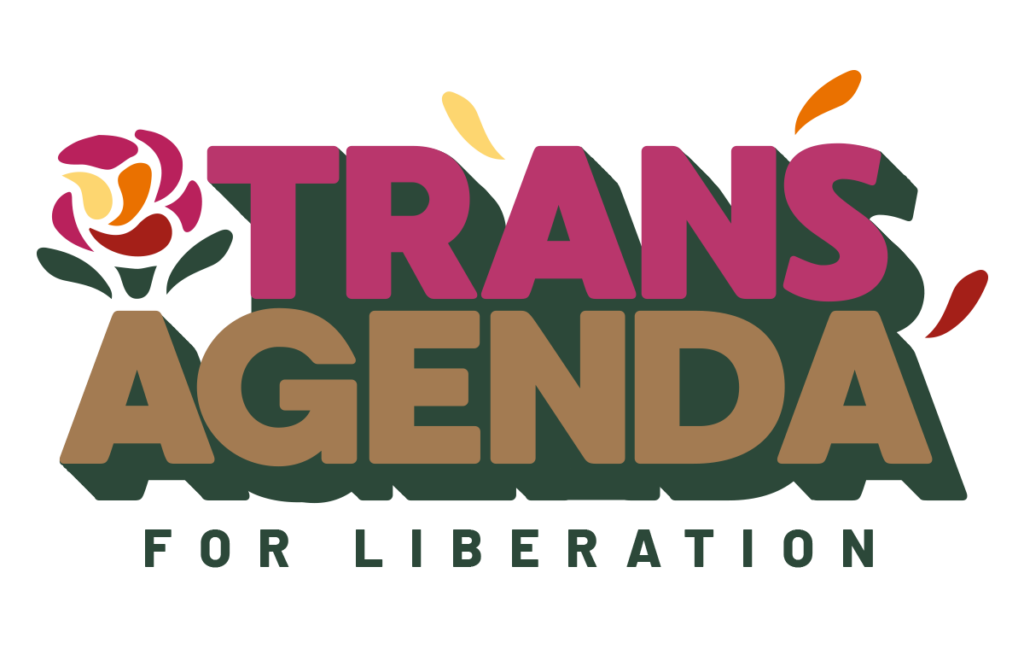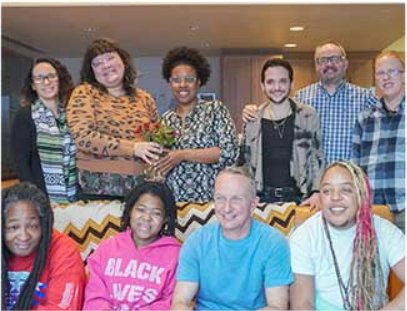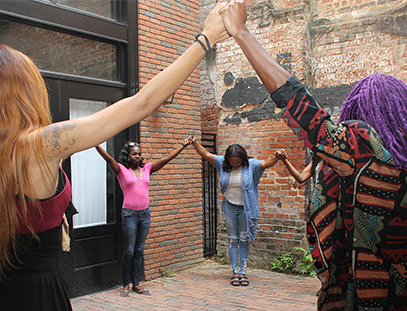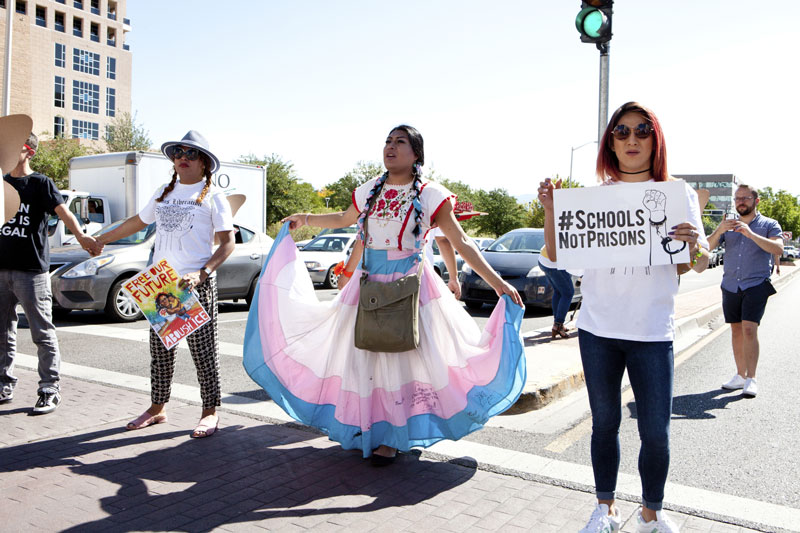Transgender Law Center
Transgender Law Center is the largest national trans-led organization advocating self-determination for all people. Since 2002 we’ve been organizing, assisting, informing and empowering thousands of individual community members towards a long-term, national, trans-led movement for liberation.


Announcement
Announcing our new Executive Director and Co-Directors of Policy and Programs!
Shelby Chestnut, Executive Director
Mickaela Bradford and Mariah Moore, Co-Directors of Policy and Programs
Trans Agenda
Grounded in legal expertise and committed to racial justice, we employ a variety of community-driven strategies to keep transgender and gender nonconforming people alive, thriving, and fighting for liberation.

Programs

Positively Trans
Transgender people living with HIV are capable of forming our own network, telling our own stories, and developing our own advocacy strategies – and TLC’s Positively Trans program is the proof.

Disability Project
Housed at Transgender Law Center through a 2019 Soros Justice Fellowship, the Disability Project magnifies the leadership, collective power, and visibility of LGBTQ disabled/Deaf/ill constituents.

Black Trans Circles
Black Trans Circles (BTC) develops the leadership of Black trans women in the South and Midwest through the creation of healing justice spaces to work through oppression-based trauma.

Gender Justice Leadership Programs
TRUTH, a collaboration between Transgender Law Center and GSA Network, is a national trans and gender nonconforming youth leadership and storytelling program.
Get Help
From employment and housing discrimination to criminalization and violence, transgender people are often forced to engage with a legal system that wasn’t built for us. Even something as basic as correcting our identity documents to reflect who we truly are can be a confusing, overwhelming, and isolating process.
By maintaining a robust collection of resources and publications, TLC does our best to guide you through some of the more common legal challenges and questions transgender people encounter. If you can’t find an answer in our publications, our Legal Information Helpdesk is here to respond to your questions and refer you to other resources and members of our pro bono network for support.
Legal
TLC has a long history of victories for the trans movement, from winning rights for trans workers nationwide in Macy v. Holder (EEOC 2012) to the first federal appellate court decision protecting trans students under federal statutory and constitutional law in Whitaker v. Kenosha Unified School District (7th Cir. 2017).

Legal Services Project
The Legal Services Project (LSP) utilizes the knowledge and power of community to equip trans people to assert their rights by sharing legal information and resources.

Litigation
TLC’s impact litigation team uses lawsuits and advocacy to fight the criminalization of trans lives, through victories in the courts, policy advocacy, and by raising the profile of issues affecting our communities.

Resources
By maintaining a robust collection of resources and publications, TLC does our best to guide you through some of the more common legal challenges and questions transgender people encounter.

Border Butterflies Project
Border Butterflies is a coordinated coalitional response to the crisis of LGBTQ+ asylum seekers at the U.S. southern border.
Support TLC
Transgender Law Center appreciates your support to keep trans and gender nonconforming people alive, thriving, and fighting for liberation. By donating, volunteering, and participating in events, you are playing a critical role in our work for trans liberation.
